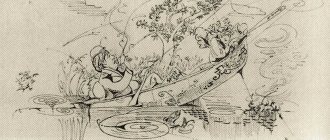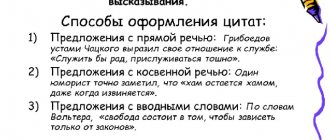Catherine II
Home ~ Literature ~ Aphorisms ~ Search by author ~ Catherine II Catherine II the Great (Sophia Frederika Augusta of Anhalt-Zerbst), was born on April 21, 1729, in the city of Stettin, Prussia. Empress of All Russia (1762-1796). The period of her reign is often considered the “golden age” of the Russian Empire. The Senate of the Russian Empire presented her with the epithets of Catherine the Great and the Wise Great Mother of the Fatherland. She died on November 6, 1796 in the Winter Palace, St. Petersburg.
The job of a good housewife is: to be quiet, modest, constant, careful; Diligent to God, respectful to father-in-law and mother-in-law; treat your husband lovingly and decently, teach small children to justice and love for your neighbor; Be polite in front of relatives and relatives, listen willingly to kind speeches, and abhor lies and deceit; not to be idle, but diligent in every product and thrifty in expenses.
Author:
Catherine II
Be gentle, humane, accessible, compassionate and generous; Let your greatness not prevent you from kindly condescending to small people and putting yourself in their position so that this kindness never diminishes either your power or their respect. Listen to everything that is at least somewhat worthy of attention; let everyone see that you think and feel the way you should think and feel. Act in such a way that good people will love you, evil people will fear you, and everyone will respect you.
Author:
Catherine II
Every parent must abstain in front of his children not only from deeds, but also from words tending towards injustice and violence, such as swearing, swearing, fighting, all cruelty and similar actions, and not allow those who surround his children , give them such bad examples.
Author:
Catherine II
Study people, try to use them without trusting them indiscriminately; look for true dignity, even if it is at the end of the world: for the most part it is modest and “hiding somewhere” in the distance. Valor does not stand out from the crowd, is not greedy, does not fuss, and allows one to forget about oneself.
Author:
Catherine II
A skillful shooter, not hitting the target, does not blame the bow or arrows, but demands an account from himself in the prophet: however, for this purpose he does not lose courage and hunt.
Author:
Catherine II
States in which there is no respect for the sovereign, in those in charge, in which there is no respect for the elderly, or for fathers and mothers, are close to collapse.
Author:
Catherine II
States in which there is no respect for the sovereign, in those in charge, in which there is no respect for the elderly, or for fathers and mothers, are close to collapse.
Author:
Catherine II (State)
If a statesman is mistaken, if he reasons poorly, takes erroneous measures, then the whole people experience the harmful consequences of this.
Author:
Catherine II
To bear something in the heart that another could not bear is the experience of a strong soul, but to do that good which another could not do is a commendable deed.
Author:
Catherine II
Do good in order to do good, and not in order to gain praise or gratitude. Good deeds bring rewards of their own accord.
Author:
Catherine II
Must. to arouse in them (youth) a desire for hard work and so that they fear idleness as the source of all evil and delusion.
Author:
Catherine II (Idleness)
There is debauchery in the home: if the housewife likes to listen to various lies, and having heard it, she tells it to her husband, and the husband believes it.
Author:
Catherine II
A person with a kind heart tries to turn every thing and deed into good; a person with a bad heart tries to find evil in good.
Author:
Catherine II
Trust only those who have the courage to cross you on occasion and who prefer your good name to your mercy.
Author:
Catherine II
It is fitting for a person to have patience in his labors and suffering, and generosity towards human faults and mistakes.
Author:
Catherine II
Never let flatterers besiege you: let us feel that you do not like either praise or baseness.
Author:
Catherine II
A cure for stupidity has not yet been found. Reason and common sense are not like smallpox: you cannot vaccinate.
Author:
Catherine II
I get robbed just like everyone else, but this is a good sign and shows that there is something to steal.
Author:
Catherine II
Swear words offend the lips from which they come as much as the ears into which they enter.
Author:
Catherine II (Insult)
If I were a man, I would certainly be killed before reaching the rank of captain.
Author:
Catherine II
He who has joy and cannot have fun is sick or gives himself over to his thoughts into oppression.
Author:
Catherine II
Petty rules and pathetic refinements should not have access to your heart.
Author:
Catherine II
A person with a mediocre mind, even if he puts in the work, cannot be skilled.
Author:
Catherine II
The first rule is to make people think that they themselves want it.
Author:
Catherine II
It is much easier to do something nice for everyone than for everyone to please you.
Author:
Catherine II
Books are a mirror: although they do not speak, they declare every guilt and vice.
Author:
Catherine II (Book)
Every child is born unlearned. It is the duty of parents to teach their children.
Author:
Catherine II (Teaching)
Having overcome any kind of work, a person feels pleasure.
Author:
Catherine II (Labor)
It is an inevitable law that error always follows truth.
Author:
Catherine II
Those who are envious or want this and that will not have fun.
Author:
Catherine II (Envy)
Aphorisms and quotes from Catherine the Great
Catherine II the Great, (1729–1796), empress
Every Russian, deep down in his soul, does not like a single foreigner.
Men in their twenties make love more passionately, but in their thirties they make love much better.
Fear may kill crime, but it also kills virtue. He who does not dare to think dares only to grovel.
The first rule is to make people think that they themselves want it. (On the art of government)
I praise loudly and blame in a low voice.
I get robbed just like others, but this is a good sign and shows that there is something to steal.
A cure for stupidity has not yet been found. Reason and common sense are not like smallpox: you cannot vaccinate.
A very bad policy is one that changes by laws what should be changed by customs.
Laws that do not preserve measure in good are the reason that immeasurable evil is born from here.
There is nothing more dangerous than wanting to put regulations on everything.
When making a law, put yourself in the place of the one who must obey it.
The people are by nature restless, ungrateful and full of informers and people who, under the pretext of zeal, are only looking for how to turn everything suitable for them to their advantage.
Thoughts caused by the very course of events arise at once in more than one head.
It also happens that people claim something that they really don’t know, just to find out whether they guessed correctly.
He who says what he wants will also hear what he doesn’t want.
I sew alone, and everyone whips me.
The human race is generally prone to injustice.
He who sings does not think evil.
Courtesy is based on not having a bad opinion of either yourself or your neighbor.
I think I'm becoming like the Shah of Bahama, who always ended his remarks with the words: "It's not my fault if you don't understand me, I understand myself very well."
Swear words offend the lips from which they come as much as the ears into which they enter.
Be gentle, humane, accessible, compassionate and generous; Let your greatness not prevent you from being good-naturedly condescending to small people and putting yourself in their position, so that this kindness never diminishes either your power or their respect.
Listen to everything that is at least somewhat worthy of attention; let everyone see that you think and feel the way you should think and feel. Act in such a way that good people will love you, evil people will fear you, and everyone will respect you.
Honor your parents at any age.
There is nothing perfect in the world.
It is fitting for a person to have patience in his labors and suffering, and generosity towards human faults and mistakes.
Every parent must abstain in front of his children not only from deeds, but also from words tending towards injustice and violence, such as: swearing, swearing, fighting, all cruelty and similar actions, and not allow those who surround his children , give them such bad examples.
Every child is born unlearned. It is the duty of parents to teach their children.
It is much better to prevent crimes than to punish them.
Double-mindedness is alien to great people: they despise all baseness.
The child shows gratitude to his parents with obedience and respect.
The job of a good housewife is: to be quiet, modest, constant, careful; Diligent to God, respectful to father-in-law and mother-in-law; treat your husband lovingly and decently, teach small children to justice and love for your neighbor; Be polite in front of relatives and relatives, listen willingly to kind speeches, and abhor lies and deceit; not to be idle, but diligent in every product and thrifty in expenses.
It must... instill in them (youth) a desire for hard work and so that they fear idleness as the source of all evil and delusion.
Study people, try to use them without trusting them indiscriminately; look for true dignity, even if it is at the end of the world: for the most part it is modest and (hidden somewhere) in the distance. Valor does not stand out from the crowd, is not greedy, does not fuss, and allows one to forget about oneself.
A skilled shooter, not hitting the target, does not lay the blame on the bow or arrows, but demands an account from himself in the prophet: however, for this purpose he does not lose courage and hunting.
Books are mirrors, although they do not speak, they declare every guilt and vice.
Those who are envious or want this and that will not have fun.
He who has joy and cannot have fun is sick, or gives himself over to his thoughts into oppression.
For those who have not studied in their youth, old age can be boring.
Those who are accustomed to work have their work made easier.
He who is satisfied with his condition has a joyful life.
Laziness is a bad teacher.
Lying is the most harmful vice of all.
It is better to study all your life than to remain ignorant.
It is better to acquit ten guilty people than to accuse one innocent person.
Love for the fatherland, shame and fear of reproach are taming means that can restrain many crimes.
People themselves are often the cause of their own happiness and unhappiness.
Petty rules and pathetic refinements should not have access to your heart.
There is no shame in admitting to a person your mistake.
Never allow flatterers to besiege you: let us feel that you do not like either praise or baseness.
Trust only those who have the courage to cross you on occasion and who prefer your good name to your mercy.
The rules of education are the first foundations that prepare us to be citizens.
Idleness is the mother of boredom and many vices.
Having overcome any kind of work, a person feels pleasure.
The winners are not judged.
A conversation with the ignorant is sometimes more instructive than a conversation with scientists.
A reasonable person can always find an exercise.
A reasonable person does not consider it a shame to learn even at an advanced age what he did not complete in his youth.
The most reliable, but also the most difficult means of making people better is bringing education to perfection.
By doing a favor to your neighbor, you will do a favor to yourself.
Do good in order to do good, and not in order to gain praise or gratitude. Good deeds bring rewards of their own accord.
To bear something in the heart that another could not bear is the experience of a strong soul, but to do that good which another could not do is a commendable deed.
Conscience is an inner, closed luminary, which illuminates only the person himself, and speaks to him in a quiet voice without sound; gently touching the soul, bringing it to its senses, and following a person everywhere, does not give him mercy in any case.
Labor is overcome by labor.
Teaching adorns a person in happiness, but serves as a refuge in misfortune.
Keep within yourself those great spiritual qualities that make up the distinctive identity of an honest man, a great man and a hero. Be afraid of any artificiality. Let not the infection of vulgarity darken your ancient taste for honor and valor.
A person with a mediocre mind, if he puts in the work, can be skillful.
A person with a kind heart tries to turn every thing and deed into good; a person with a bad heart tries to find evil in good. It doesn't take much sense to discredit something. If you see your neighbor's vices, do not show them yours by condemning them.
More on the topic:
- Quotes from Russian monarchs
- Quotes and sayings of Peter the Great
- Quotes and sayings of Ivan the Terrible
Popular:
- Meetings and separations
- Happiness and unhappiness
- Quotes by Paulo Coelho
Comments:
After the failure of criticizing reality (Radishchev) with the sentiments of idealism (Masons), there was still one more path left for Russian thought - “reconciliation with reality.” The Russian people were led to this third path by disappointment in Voltaire and other French philosophers, doubt about the correctness and applicability of their views.
Catherine II. Takeoff. Series
Empress Catherine II herself came to this conclusion. After the intensive inculcation of Westernism during the era of the reforms of Peter I, Russian society seemed to get tired and turned its eyes back to Muscovite Rus'...
At the height of the French Revolution, Catherine II began to study Russian history; She gave up, according to her, reading all books except chronicles. Obviously, the foundations on which she wanted to build the Russian state when she ascended the throne now seemed shaky to her - she had to look for new, more durable ones - in the past.
The result of her acquaintance with Russian history was the confidence that the Russian land before the death of Fyodor Ioannovich was in no way inferior to the West. From the Moscow tsars, the empress received the idea that Russia is the heir of Byzantium, and that therefore Constantinople should be a Russian city; This conclusion was also imposed on her by her Eastern policy.
This is how a new, “nationalist” course of Catherine’s domestic and foreign policy took shape. She found support for this understanding of Russian life among many Russian people of that era, who independently came to the conclusion that “everything is better here” and “we are more people than Germans” (Fonvizin), that life abroad is “generally worse than ours” (he same).
Catherine now began to prove in print that “people are people everywhere.” “In Russia, people are the same as everywhere else: neither completely good, nor completely bad.” Then she, who recently still wanted to seduce Russian savages with the bright sides of Western European cultural life, now began to carefully look for dark spots in this life and one day finished listing the benefits of Russian life with the words: “The Russian peasant is a hundred times happier and more prosperous than the French: Russian officials are one hundredth share are not such tyrants as the officials of the French king; there is no country in which the life and property of its subjects would be protected by greater formalities than in Russia; citizens are the least constrained, the least subject to petty quibbles.”
The Empress's interest in the past also led her to patronize historical works. She herself wrote the history of Russia and encouraged others.








